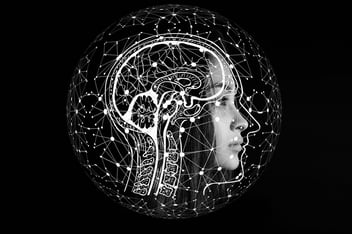Neurodiversity in the Water Sector Workshop - Current Initiatives
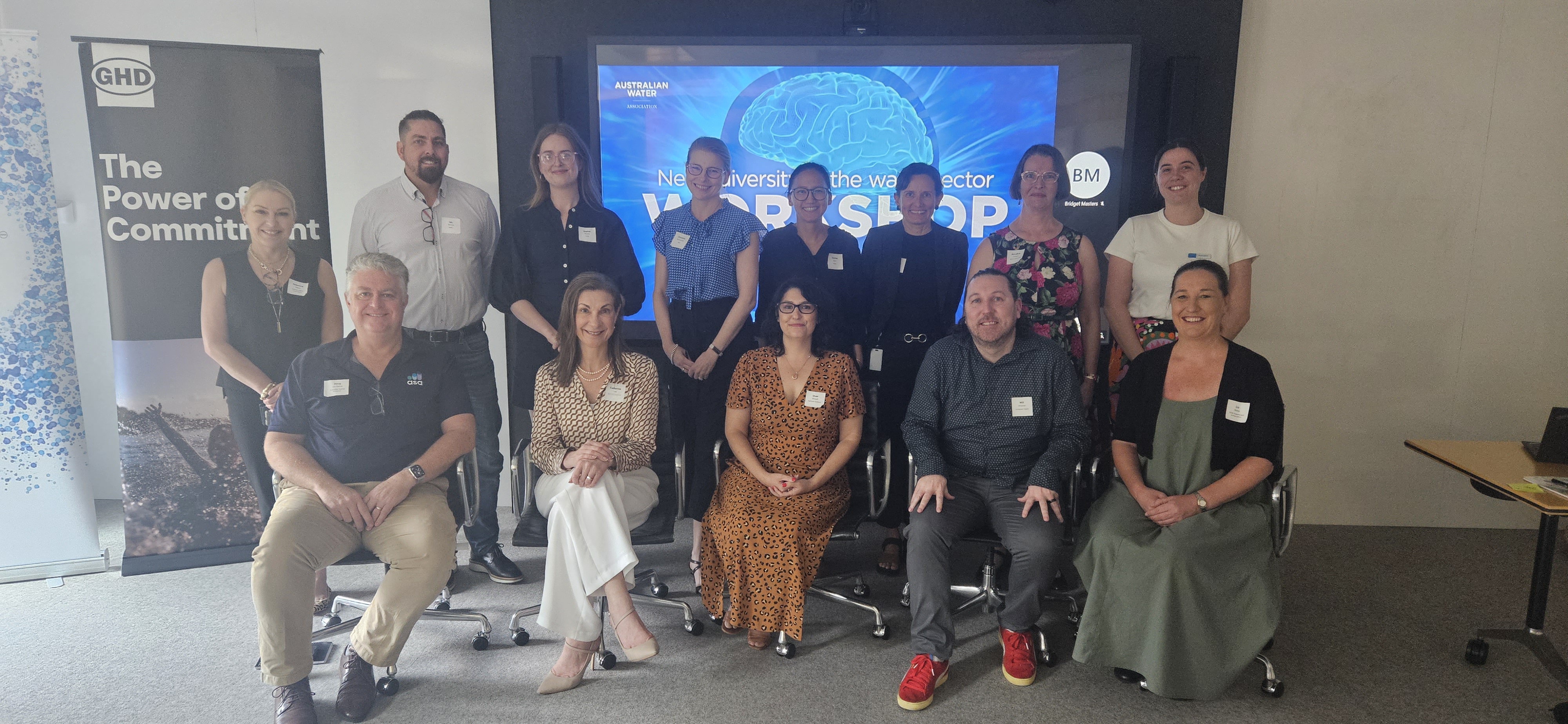
Last week, attendees gathered to hear those with lived experiences of neurodiversity and participated in a workshop to facilitate better outcomes for neurodivergent people across work, health, safety and more. This is a brief recap of the first session which covered current initiatives for those who are neurodivergent.
How can we as a sector harness the power of the neurodiverse to address our skill shortage both now and into the future?
Neurodivergent people have one or more ways in which their brain functions outside the "typical" way. Historically these differences have been seen as deficient, but many sectors are recognising the benefits that the innovative thinking, attention to detail and hyperfocus of the neurodiverse bring to the workplace.
- Bec Mede, Sydney Water
- Dorine Kuo, ARUP
- Christina Kerneborne, Seven Sixes
- Doug van Gelder, Australian Spatial Analytics
- Sophie Barton, GHD
Inclusivity in DEI frameworks
Bec Mede began the first session of the day by outlining Sydney Water's Diversity, Equity and Inclusion framework.
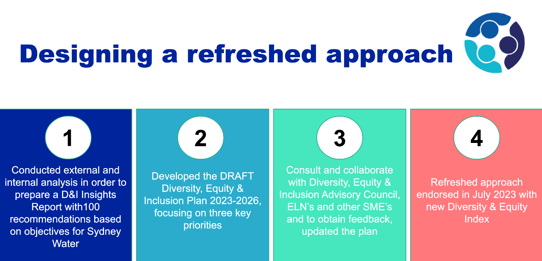
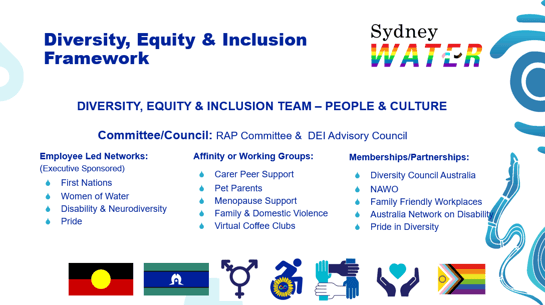
“Creating better lives for our customers and communities starts with creating better lives for our employees”, Bec said.
"We needed to increase our focus right across the spectrum of neurodiversity”.
“The diversity data we have is very limited, we ask only six questions and one of our key membership projects is to ensure we’re capturing the demographic data accurately to meet the needs of our people”, she said.
“We want to send the message that you’re in a workplace where you don’t have to pretend to be something you’re not. Individually, we are one drop. Together we are an ocean”.
Neurodiversity - what's strong with you?
Dorine Kuo of ARUP followed with a presentation to highlight the unemployment rate for those with neurodiversity.
“The unemployment rate in Australia for people with autism is 31.6%”, she said.
Dorine provided facts and dispelled myths around neurodiversity including;
- 80% of the population live with a hidden disability;
- Around 15% - 20% are neurodivergent;
- Neurodivergent brains work differently, not deficiently;
- More than half of unemployed autistic Australians had never held a paid job, despite often possessing the skills, qualifications and a strong desire to join the workforce; and
- Autism is the most commonly known of neurodiversity but it can include dyslexia and ADHD
Dorine also outlined Arup's strategy and survey results from Amaze that outlined the needs of those with neurodiversity
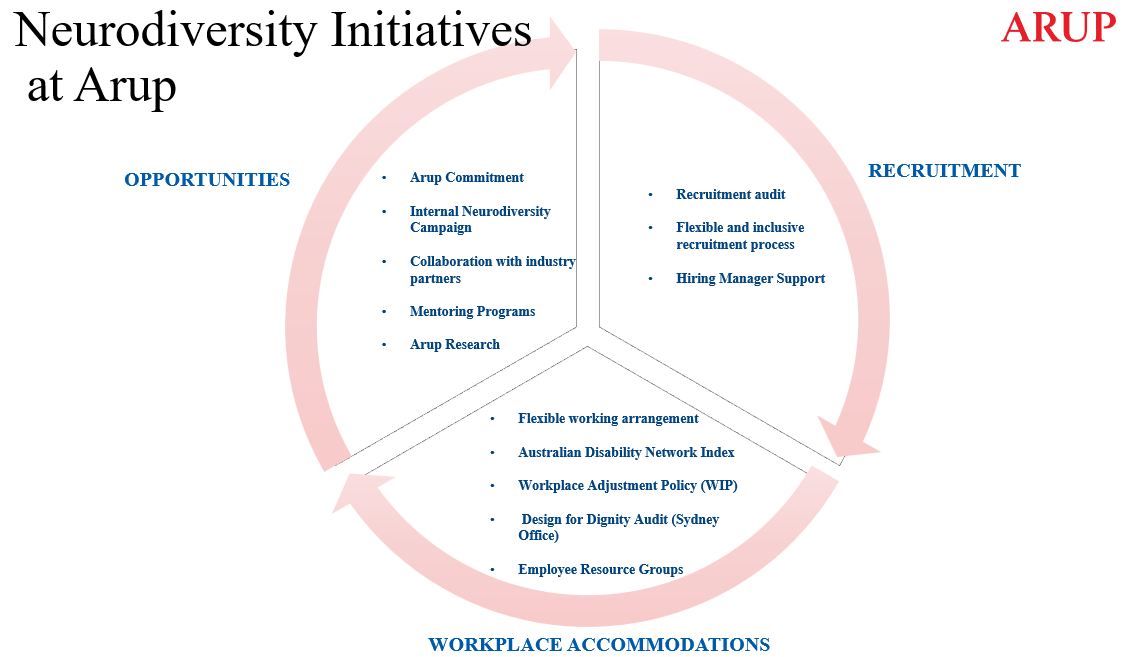
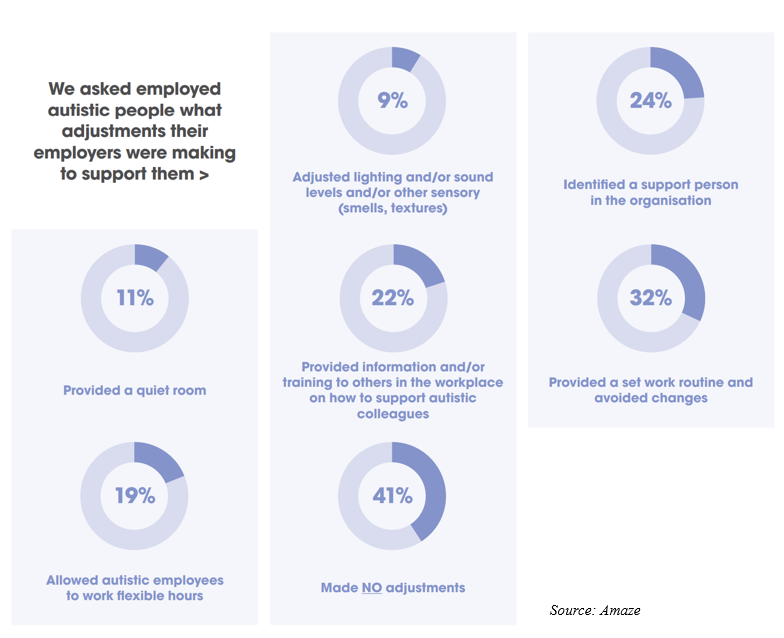
Christine Kerneborne of Seven Sizes spoke of her passion for inclusion and diversity
“I’m 18 months into my journey as a parent of two children with ADHD, going into this journey, I already had a passion for inclusion", she said.
The demand for neurodivergent people
Doug van Gelder of Australian Spatial Analytics spoke about creating a welcoming environment that fosters neurodivergent people to excel and succeed in the workforce.
"We see neurodiversity as terribly underemployed but there’s huge demand for the skills that neurodivergent people possess. Neurodiverse people struggle to get jobs and struggle to be seen. What ASA are doing is helping people get the confidence and skills in the workforce", he said.
Doug drew an interesting statistic from the Buckland Review of Autism Employment (UK) which states "The best economic models suggest that the UK economy loses approximately $AUD 28 Billion each year because autistic people are unemployed or otherwise unable to participate in the workforce".
Australian Spatial Analytics are employing neurodivergent staff with their recent statistics showing;
- 80% of ASA staff identify as neurodivergent;
- For 70% of the staff, this is their first job;
- 61% of staff had prior long term unemployment
- The average hour working week is 28 hours
- Seven staff have left disability support pensions entirely
For ASA, being neurodivergent friendly included overhauling the typical recruitment process by allowing social events to be optional and upskilling all staff in neurodiversity training on top of retooling interview/recruitment methods to focus on transferable skills, aptitude and attitude and questions provided 48 hours in advance.
"We've done it and now so can you" - Doug said to a thundering applause.
A mature DEI Program- lessons to be learned
Sophie Barton, Graduate Water Engineer at GHD presented a different take on the diversity, equity and inclusion framework. She outlined that at GHD, they have streams focusing on
- Awareness: regular awareness pieces through internal communications, and I&D shares.
- Internal support and training: providing support for neurodiverse individuals, their managers and people team
- System change: Development of formal and effective declaration piece and appropriate management of this
- Engagement Group: Connecting neurodiverse representatives to nurture community for connection and mentorship.
“We understand that Inclusion and Diversity is an enabler of our business and the broader water sector" she said.
"We need to take a strengths-based approach rather than a catch-all to really improve inclusion for all types of neurodiverse individuals".
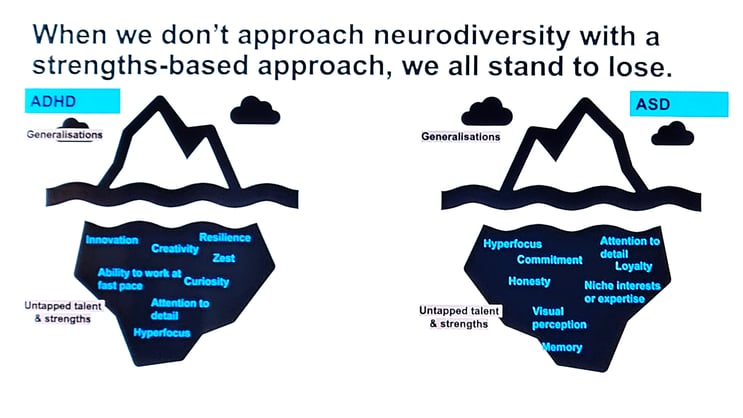
Sophie offered a personal reflection that “Having a mature program offers learnings that are beneficial for organisations who are on the cusp of their DEI journey”
"Relying exclusively on neurodivergent voices for advocacy has high, highs and low, lows", she said.
Thank you to our panels of speakers, keep your eyes peeled for our next recap from the Neurodiversity in the Water Sector Workshop on Creating Successful Programs.


